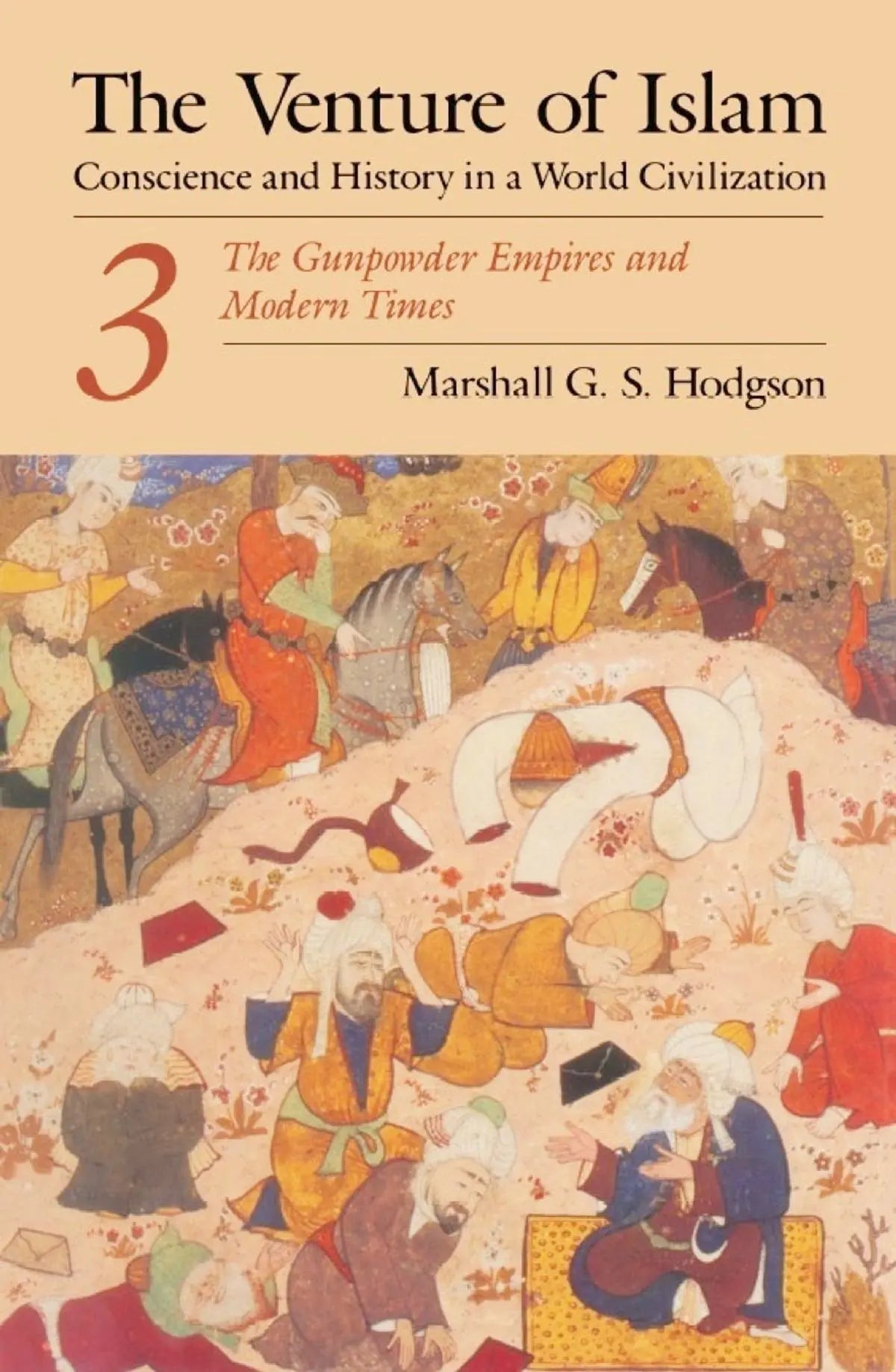About The Book
The Venture of Islam has been honored as a magisterial work of the mind since its publication in early 1975. In this three-volume study, illustrated with charts and maps, Hodgson traces and interprets the historical development of Islamic civilization from before the birth of Muhammad to the middle of the twentieth century. This work grew out of the famous course on Islamic civilization that Hodgson created and taught for many years at the University of Chicago.
In this concluding volume of The Venture of Islam, Hodgson describes the second flowering of Islam: the Safavi, Timuri, and Ottoman empires. The final part of the volume analyzes the widespread Islamic heritage in today’s world.
Contents:
List of Charts
List of Maps
Book Five: Second Flowering: The Empires of Gunpowder Times
Prologue to Book Five
I. The Safavi Empire: Triumph of the Shi’ah, 1503-1722
II. The Indian Timuri Empire: Coexistence of Muslims and Hindus, 1526-1707
III. The Ottoman Empire: Shari’ah-Military Alliance, 1517-1718
IV. Before the Deluge: The Eighteenth Century
Book Six: The Islamic Heritage in the Modern World
Prologue to Book Six
I. The Impact of the Great Western Transmutation: The Generation of 1789
II. European World Hegemony: The Nineteenth Century
III. Modernism in Turkey: Westernization
IV. Egypt and East Arab Lands: Revival of the Heritage
V. Iran and the Russian Empire: The Dream of Revolution
VI. Muslim India: Communalism and Universalism
VII. The Drive for Independence: The Twentieth Century
Epilogue: The Islamic Heritage and the Modern Conscience
A Selective Bibliography for Further Reading
Glossary of Selected Terms and Names
Index to Volume III
About The Author
Marshall G. S. Hodgson (1922-1968) was an influential scholar of Islamic religion and culture. He taught at the University of Chicago and chaired the Committee on Social Thought. At his death at age 46, he left behind a manuscript that would become a magisterial three-volume book, The Venture of Islam, published posthumously by the Press. The Venture of Islam has shaped all subsequent study of Islam.
show more

